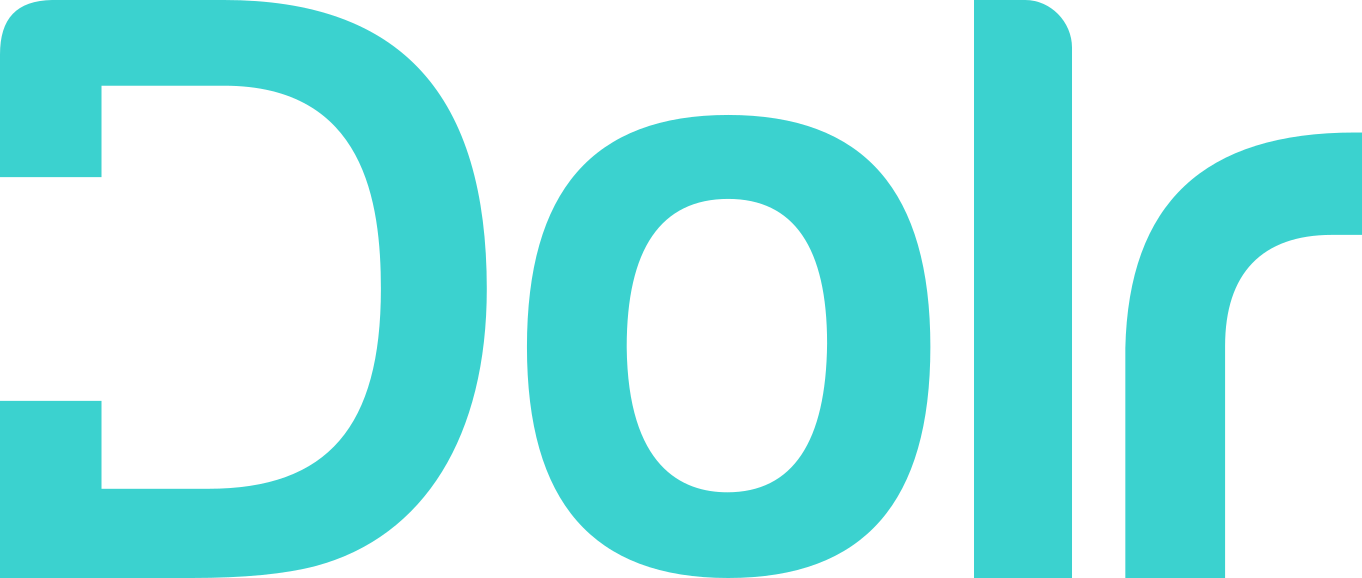Do you need a financial advisor?
Most people don't need a financial advisor. People need more money and better money habits.

A few weeks ago, I created a whole lot of controversy on LinkedIn. I said most people don't need a financial advisor.
A spirited debate followed in the comments between myself and Akash Chanda. We covered a lot of ground and disagreed on some core ideas. We decided to work together to get to the bottom of it. This post is the first piece in a series of collaborations we have planned. None of us have all the answers. By having a healthy and informed discussion, we can grow and provide more value to the people who engage with us. We are starting off with something we agree on.
To answer today's question: most people don't need a financial advisor.
Instead, people need access to better resources. We are each going to share the resources we consider most important in this post.
For me money is the biggest limiting factor when it comes to personal finance success. The root cause of financial stress is people don't have enough money.
Akash’s resources focus on the behavioral and knowledge sides of money. He believes that most people have dormant financial potential that can be unlocked with the right information, perspective, and tools.
Neither of us are stick in the mud people. We know that it’s not one or the other that you need, but both. We differ in the weight we put on more money vs better money mindset.
Financial Advice vs Financial Advisors
Everyone eats food, and yet not everyone needs a dietician. Not everyone who handles money needs a financial advisor. So, how do you tell if you need one?
It comes down to complexity. Financial advisors help people with complex financial situations manage their money. They advise clients with custom strategies for wealth, tax, and life positions. Most of us do not have to deal with the kind of complexity that merits the help of a financial advisor. That is a good thing! It means we have less problems to solve.
As you read that, you may be wondering, “hmm… I have money problems I can’t solve myself; I guess I need a financial advisor.” Not quite. What you are likely need instead is clear, dependable, well-researched financial advice. The kind of advice that can enable you to unlock solutions to your money problems. By connecting you to high-quality resources and impactful information.
Let us look at some examples of high-quality resources and impactful information. Each will tackle one or more money problems you may face, without the help of a financial advisor.
But before we do that, let us introduce ourselves and why this topic is important to us.
Naveed Iqbal
I'm the CEO and co-founder at Dolr. We started Dolr after hundreds of conversations with people carrying student loans. We learned that people are smart, hard working, and want to build wealth. We know the biggest barrier to building wealth is money. People don't have enough money to enjoy the lives they've worked so hard to build.
We're called Dolr because we get people more money. First, we help you pay down your student debt. Then we'll help you build wealth.
Most "advice" out there assumes people are dumb. I know it's the the opposite. You are smart. You need a break. By getting you more money we give you the space you need to grow your wealth.
Connect with me on LinkedIn or send me an email at hello@getdolr.com
Akash Chanda
I entered the personal finance education space earlier this year in a bid to help you lead a happier and more fulfilling life by building a harmonious relationship with your money. I am a big believer in positive money psychology, and I will help you find your why when it comes to personal finance. And once you have that, I am here to help you with the ‘what’ and the ‘how’, so that you can achieve the meaningful goals you set.
We can chat on LinkedIn or you can find me on YouTube @feelgoodfi
Naveed’s Picks: More money
I am a data person. I spent a long time earning a PhD in Applied Math. My focus was Chaos Theory and Computational Mathematics. I've learned how to change my mind by interrogating data. And the importance of having good data.
Yet, this is one thing I cannot change my mind on. People need more money. That's the only way to create space for growth, learning, and habit formation.
I know that if people have enough money it affords them the time and freedom to make better money decisions. But expecting people to make those decisions when they are struggling to live is unfair.
How do I know people don't have enough money?
My wife told me 🤣. She laughs that I spent a year speaking with folks only to arrive at the conclusion that people don't have money. "I could have told you that a year ago!"
Kidding aside, the question to ask is: how much money does a person need to earn to support a comfortable life? The folks at SmartAsset published a fantastic report on this.
A single person needs almost $100K for sustainable comfort in the USA. The average national salary is $59K. So the average person needs $41,000 more for sustainable comfort. 🤯. It's rough out here y'all.
Most financial advice you see is about "being better with your money." These advisors assume you have a fixed income. At most you might see content about how to get a raise at work. That's something you can only do once a year though.
We have a different perspective. Society has incentives to give you money for your student loans. And I'm not talking about taxes or forgiveness. I mean hard cash. There's a growing group of people who agree with me. Together we're building the "found money" movement. Check out this Forbes article for some notable companies (including Dolr!) that find you money. My faves:
- Alice: helps get you money for your work commute. You can get up to $500 per year to pay for parking and other work commute related expenses.
- Canary: powers community based support to cover sudden, destabilizing emergencies and the resulting financial hardship. It's like a mutual aid program where employees can help each other with grants.
- Propel: helps low-income families save money on everyday expenses—from utility assistance programs to broadband subsidies like the Affordable Connectivity Program.
At Dolr we track how getting people extra cash has an influence on their money habits. We'll publish this report soon. The preliminary findings are eye opening. People change when they "feel" like they're making progress. We see members of the Dolr community activate better behavioral economics. For example
- Getting contributions from work for student loan payments motivates people. They start tracking their debt more. They start believing they can beat their student loans.
- Their mindset changes from "I can't pay this off" to "I can't wait to pay this off."
- They take a more active interest in their other financial benefits at work
All this happens by adding a little bit more money to the equation. What's even more remarkable is the money doesn't go into their pockets. It goes directly to student loan payments. So even when their bank balance remains the same they behave like it's grown.
That is the single most important thing. A lot of people start at changing the "inside." We change the environment. The "outside." By changing the environment we let people shine. You are brilliant. You know what to do with your money. We get you more.
We don't hate financial advisors. They serve an important role for the people they serve. Most people don't need them ... yet. We're working to help people get more money.
I hope you get more money. So you can have more problems. So you can afford to hire a financial advisor. You got this.

Akash’s Picks: Impactful information
Your brain is a problem-solving machine. You input ideas, experience, and knowledge on one end and get solutions out the other. If you want better solutions you need better input. Smarter ideas, richer experience, and stronger knowledge. Finding the right information from the right sources helps you do that. Below are some examples of solid dependable sources of helpful and effective information. Hopefully these help you identify what good information looks and sounds like.
The Choose FI podcast
This podcast might be the best personal finance podcast out there. It's geared towards people in pursuit of Financial Independence (FI). The topics discussed are relevant to anyone working to improve their financial habits. The host, Brad Barrett, is a very calm and intellectual person. He prides himself in supporting the FI community.
The podcast episodes vary in format. The most common type of episode is an interview with an expert in some field or topic. The topics are wonderfully varied. For example, in a recent episode Brad interviewed the host of the Financial Feminist podcast, Tori Dunlap. The discussed her FI journey over the last few years. It was a higher-level conversation that almost felt like a catch-up between friends. Two episodes before that Brad interviewed Jesse Cramer of the Best Interest blog for a deep-dive into the RRTTLLU investing framework.
Because there are almost 500 episodes now, you can pick and choose the topics that are relevant to you. Regardless of where you are in your financial journey I recommend taking a listen. Brad suggests episode 100 as a great starting point.
To learn more about Choose FI, visit their website at https://www.choosefi.com
The Money Guy Show on YouTube
Hosted by two CFP's Brian Preston and Bo Hanson. It's based on answering viewers’ personal finance questions. The duo tackle a variety of personal finance topics, both in breadth and complexity. It is a fantastic place to learn about investing, saving, retirement planning, taxes, and more. They have a genuine and measured style, which translates to a comfortable watch or listen.
They discuss things with an open mind and are very thorough in their answers to questions. They also disagree at times, which is refreshing to see. I recommend this for people already on their personal finance journey. The Money Guy Show is an excellent way to advance your learning and round your knowledge.
Visit their website to learn more: https://moneyguy.com/show
Humphrey Yang
Humphrey is a personal finance content creator covering varied topics. Including investing, budgeting, and self-improvement. He stands out because of his balanced and research-intensive approach to topics. If you're looking for a general go-to person to open up your way of thinking about your personal finances, Humphrey Yang is a solid option.
To watch some of his videos, visit his YouTube channel: https://www.youtube.com/@humphrey
What I’ve Learned From Personal Finance Educators
Almost everything. I have learned so much about investing, saving, budgeting, financial strategy, spending, and more. I learned how to advocate for myself in the workplace, which helped me nearly triple my salary over a 4-year period. I learned what a HSA is, and how it can be used as a powerful retirement account. I learned how to use a credit card and earn rewards without paying any interest. I could go on and on, but you get the point.
Ever since I started learning about personal finance and FI in 2019, I have watched and listened to a wide range of educators and content creators. Over that time, I have found ways to pick out the people I connect with and the ideas that resonate with me. The content I consume is a mixture of new information and conversations about topics I’m already familiar with.
I have heard so many examples of how being introduced to the concept of FI has changed people’s lives. With nothing other than exposure to a different way of thinking, a lot of people have managed to drastically improve their lives, and I am one of them. This includes people across the income range. I have also heard many interviewees on podcasts expressing how the simple things in personal finance are not known by the majority of people. That is one of the reasons I am here, writing this.
I was an Android Engineer for 5 years, but now I am building a business out of what I love most: personal finance education. I am here because everything I learned, from the aforementioned people and more, has absolutely changed my life. Through that process, I have developed my unique understanding of personal finance, and I want to share it with you.
You (Probably) Don’t Need a Financial Advisor
You can likely solve most of your financial problems using one of the resources above. Or by engaging with one of the high-quality sources of information out there. And if your situation is more complex you may need a financial advisor.
Regardless, we hope that reading this gave you some food for thought. You may feel motivated to solve your own financial problems and grow your ability to do so. If so, you have two strong backers. Dolr is here to get you more money for your student loan payments. And Akash, your new personal finance friend, is keen to help you use your money build a happy and fulfilling life.



